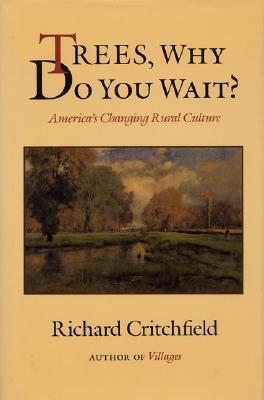Richard Critchfield, author of the best-selling books Villages and An American Looks at Britain , examines the inescapable link between the decline of America's rural roots and the decay of our cities. Trees, Why Do You Wait? is a moving oral history chronicling the changes taking place in rural America. Through it, we meet real people of the heartland and feel the suffering and the strength in their relationship to the land.

